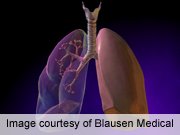Report tallies $223 billion in total losses, especially from binge drinking

TUESDAY, Aug. 13 (HealthDay News) — Excessive drinking is a major economic problem in the United States, costing billions of dollars in health care costs, lost worker productivity and other consequences involved, the federal government reported Tuesday.
The nationwide economic burden of excessive drinking in 2006 was $223.5 billion. The cost for each state ranged from $420 million in North Dakota to $32 billion in California. The median cost per state for each single alcoholic drink was $1.91, the report said.
The highest per-person cost from excessive drinking was $1,662 in Washington, D.C. [Read more…]












